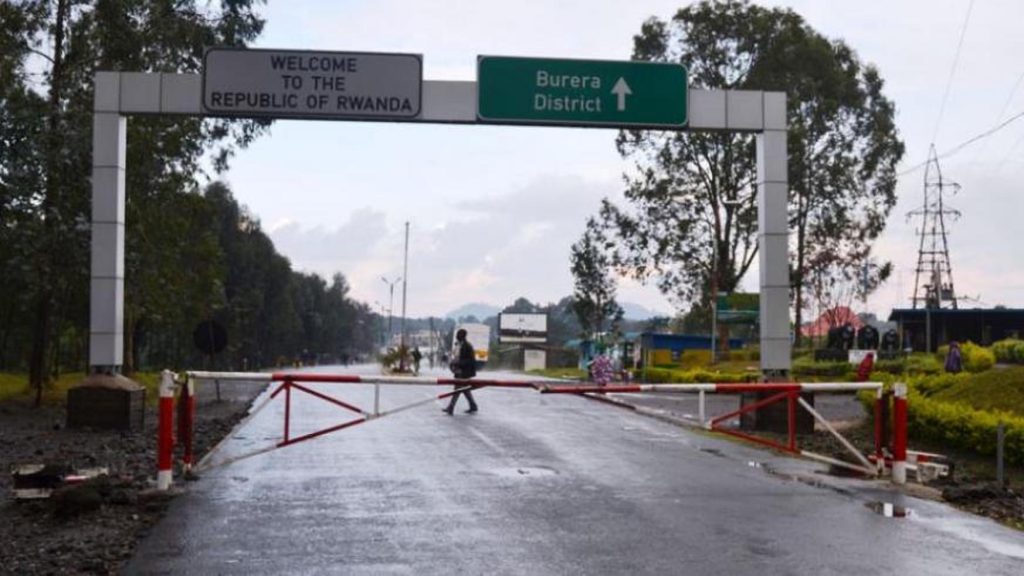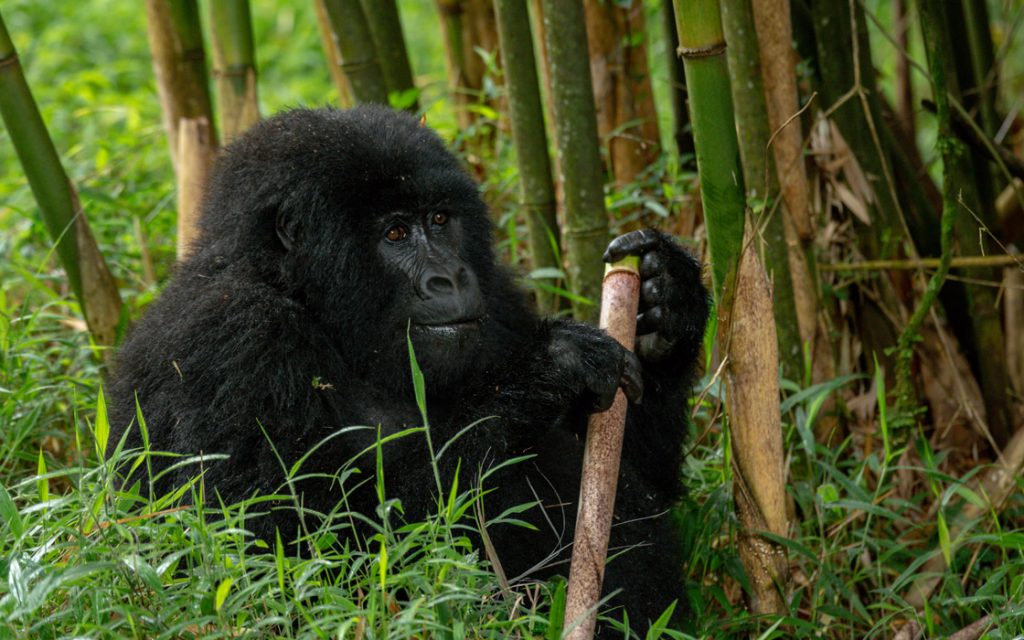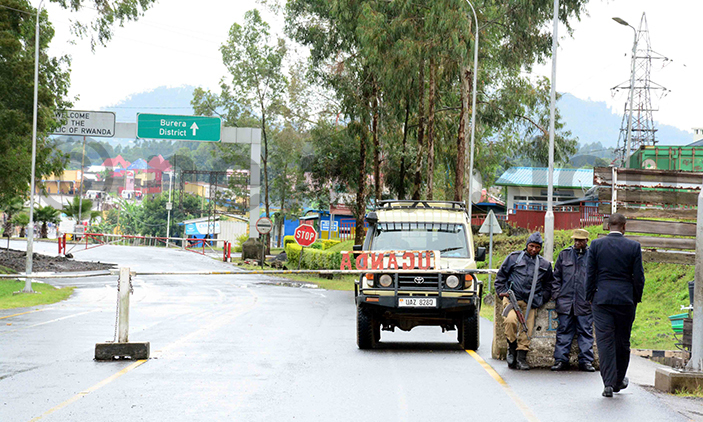How to Cross the Uganda Rwanda Border for a Safari: A Comprehensive Guide
How to cross the Uganda Rwanda Border for a Safari: The Uganda-Rwanda border is a popular choice for travelers embarking on East African safaris, particularly for gorilla trekking, wildlife adventures, and cultural experiences.
Both countries are renowned for their stunning landscapes, diverse wildlife, and unique attractions, such as Uganda’s Bwindi Impenetrable National Park and Rwanda’s Volcanoes National Park.
This guide provides everything you need to know about crossing the border, including visa and entry requirements, border points, transportation options, safety tips, and practical advice to ensure a seamless and enriching safari experience.
As Hail Tours Uganda Safaris, we aim to make your journey unforgettable, and we’ll conclude by explaining why booking with us is the best way to explore these incredible destinations.
Overview of Uganda-Rwanda Border Crossings
The Uganda-Rwanda border is a vital link for tourists, traders, and locals, facilitated by the East African Community (EAC) agreement, which promotes regional integration and streamlined movement between member states, including Uganda, Rwanda, and Kenya. The border is generally safe and well-regulated, with three primary crossing points for safari travelers:
- Katuna (Uganda) – Gatuna (Rwanda):
- Location: Kabale District (Uganda) and Gicumbi District (Rwanda).
- Significance: The busiest crossing, used for both commercial traffic and tourism. It’s ideal for travelers heading to Kigali or central Uganda.
- Hours: Open 24 hours, making it convenient for flexible travel schedules.
- Facilities: Modern customs and immigration services, parking, and inspection areas.
- Cyanika (Rwanda) – Kyanika (Uganda):
- Location: Burera District (Rwanda) near Musanze and Kisoro District (Uganda).
- Significance: Popular for tourists visiting Bwindi Impenetrable National Park (Uganda) or Volcanoes National Park (Rwanda) for gorilla trekking. It’s closer to the southern sectors of Bwindi and Mgahinga Gorilla National Park.
- Hours: Open from 5:00 AM (Rwanda time) or 6:00 AM (Uganda time, one hour ahead) to 6:00 PM.
- Facilities: Less crowded than Katuna, with efficient one-stop border post (OSBP) processes.
- Kagitumba (Rwanda) – Mirama Hills (Uganda):
- Location: Eastern Rwanda and Northern Uganda.
- Significance: Primarily used for trade but also suitable for tourists traveling to eastern Uganda or Rwanda’s Akagera National Park.
- Hours: Typically 6:00 AM to 6:00 PM.
- Facilities: Streamlined OSBP with customs and immigration services.
These border points are well-equipped to handle tourist traffic, with the Katuna-Gatuna and Cyanika-Kyanika crossings being the most popular for safari travelers due to their proximity to key attractions like Bwindi and Volcanoes National Parks.
Visa and Entry RequirementsProper documentation is essential for a smooth border crossing. The requirements vary based on your nationality and the purpose of your visit.
Below is a detailed breakdown:
For East African Nationals:
- Citizens of EAC Countries (e.g., Uganda, Rwanda, Kenya):
- No visa is required for short stays (up to 180 days for Ugandans in Rwanda, for example).
- You can cross using a valid national ID or passport.
- Example: Ugandans can enter Rwanda with just a national ID, and Rwandans can do the same for Uganda.
For Foreign Nationals:
- Visa Options:
- East Africa Tourist Visa:
- Cost: $100 USD.
- Validity: 90 days, multiple entries across Uganda, Rwanda, and Kenya.
- Application: Apply through the embassy or online portal of the country you’re entering first (e.g., Rwanda’s irembo.gov.rw or Uganda’s visas.immigration.go.ug).
- Benefits: Ideal for multi-country safaris, allowing seamless travel between Uganda, Rwanda, and Kenya without needing separate visas. This is highly recommended for gorilla trekking tours combining Bwindi (Uganda) and Volcanoes (Rwanda).
- Single-Entry Visa for Uganda:
- Cost: $50 USD.
- Validity: 90 days, single entry.
- Application: Available on arrival at Entebbe International Airport or major border points (e.g., Katuna, Cyanika), or online via visas.immigration.go.ug.
- Single-Entry Visa for Rwanda:
- Cost: $50 USD.
- Validity: 30 days, single entry.
- Application: Available on arrival for all nationalities or online via irembo.gov.rw.
- East Africa Tourist Visa:
- Required Documents:
- Valid passport (minimum 6 months validity).
- Yellow fever vaccination certificate (mandatory for entry into both countries).
- Return or onward travel ticket (sometimes requested).
- Proof of accommodation or an invitation letter (occasionally required).
- For Rwanda, you may need to provide the address or contact details of your host or lodging.
- Health Requirements:
- Yellow Fever Vaccination: A certificate is mandatory at all border points. Ensure you get vaccinated at least 10 days before travel and carry the certificate.
- Other Recommended Vaccinations: Typhoid, Hepatitis A and B, and malaria prophylaxis are advised due to the prevalence of malaria in both countries.
- COVID-19 (as of 2025): Most restrictions have been lifted, but carrying proof of vaccination is recommended in case temporary advisories are in place.

Entry Tips
- Apply for Visas in Advance: While visas are available on arrival, applying online reduces wait times and ensures smoother processing. Use official portals like visas.immigration.go.ug for Uganda or irembo.gov.rw for Rwanda.
- East Africa Tourist Visa Preference: If your safari includes both Uganda and Rwanda, the $100 East Africa Tourist Visa is cost-effective compared to two single-entry visas ($50 each). It also simplifies multiple border crossings within 90 days.
- Yellow Fever Certificate: Always carry the original certificate, as border officials may deny entry without it.
- Check Visa Requirements by Nationality: Citizens of some countries (e.g., Kenya, Tanzania, Zambia) are visa-exempt for Uganda and Rwanda, but most international travelers (e.g., from the US, UK, EU, Canada, Australia) require a visa.
- Organize Documents: Have all documents (passport, visa, yellow fever certificate, itinerary) readily accessible to expedite immigration checks.
Crossing the Border: Procedures and Tips
Crossing the Uganda-Rwanda border is straightforward if you’re prepared. Here’s what to expect and how to ensure a smooth experience:
- Immigration and Customs Procedures:
- Present Documents: At the border, present your passport, visa (or apply on arrival), and yellow fever vaccination certificate. Immigration officers may ask for proof of accommodation or travel plans.
- Bag and Vehicle Inspections: Rwanda has stricter regulations, and bags may be inspected at Cyanika or Gatuna. Declare any goods or currency above the legal threshold (e.g., $10,000 USD) to avoid penalties.
- Customs Duties: If carrying commercial goods, you may need to pay duties. For personal items (e.g., cameras, clothing), no duties are typically required for tourists.
- Stamping: Your passport will be stamped upon entry and exit. Ensure stamps are clear to avoid issues at future crossings.
- Processing Time:
- Crossing typically takes 30 minutes to 1 hour during off-peak hours, but it can take longer during peak times (e.g., weekends, holidays, or early mornings with commercial traffic).
- Arrive early (e.g., 6:00 AM) to avoid queues, especially at Katuna-Gatuna, which is busier due to 24-hour operations.
Tips for a Smooth Crossing:
-
- Travel Off-Peak: Early mornings or late afternoons are less crowded. Avoid weekends and public holidays if possible.
- Use Official Border Posts: Stick to Katuna-Gatuna, Cyanika-Kyanika, or Kagitumba-Mirama Hills for safety and efficiency.
- Be Patient and Respectful: Border officials may ask additional questions. Stay calm and cooperative to avoid delays.
- Work with a Tour Operator: A reputable operator like Hail Tours Uganda Safaris can handle documentation, transport, and border logistics, making the process seamless.
Transportation Options:
Getting to and across the border depends on your starting point (e.g., Kigali for Rwanda or Kampala for Uganda) and your safari itinerary. Here are the main options:
- Private Guided Tours:
- Best Option: Booking a private tour with a licensed operator like Hail Tours Uganda Safaris is the safest and most convenient way to cross the border. Professional drivers are familiar with routes and border procedures, and guides enhance your safari with cultural and wildlife insights.
- Cost: Varies based on itinerary (e.g., $1,290 for a 3-day gorilla trekking tour from Kigali to Bwindi).
- Benefits: Seamless border crossings, comfortable 4×4 vehicles, and assistance with immigration.
- Bus:
- Operators: Reputable companies like Kinga Transport, Jaguar Executive Coaches, and Yahuwa Coaches operate between Kigali and Kampala.
- Duration: 8-10 hours, depending on border wait times.
- Cost: $10-$20 USD.
- Considerations: Buses are budget-friendly but less flexible and may involve longer waits at the border.
- Private Car or Taxi:
- Hiring a private vehicle offers flexibility. Ensure the driver has cross-border clearance.
- Cost: Higher than buses, typically $100-$200 depending on distance and vehicle type.
- Route Example: From Kigali to Bwindi via Cyanika takes 4-5 hours, compared to 8-9 hours from Entebbe.
- Motorcycle (Boda Boda):
- Common for short distances near the Cyanika border, especially for locals or budget travelers.
- Cost: $5-$10 USD.
- Considerations: Less safe and not recommended for long distances or tourists with luggage.
Safety and Security Tips
The Uganda-Rwanda border is generally safe, but precautions ensure a worry-free experience:
- Avoid Night Travel: Border areas are safer during daylight hours. Stick to official crossing times (e.g., 6:00 AM-6:00 PM for Cyanika and Kagitumba).
- Secure Valuables: Keep passports, cash, and electronics hidden to avoid theft.
- Stay Informed: Check travel advisories from Rwanda’s Directorate General of Immigration and Emigration or Uganda Immigration Services for updates on border policies or regional issues.
- Use Reputable Transport: Avoid unofficial taxis or boda bodas for cross-border travel. Book with a trusted operator like Hail Tours Uganda Safaris.
Cultural and Practical Tips
- Currency:
- Uganda: Ugandan Shilling (UGX).
- Rwanda: Rwandan Franc (RWF).
- Exchange small amounts at border forex bureaus or use mobile money (e.g., MTN Mobile Money, Airtel Money). ATMs are available at major border posts.
- Languages:
- Uganda: English, Luganda, Swahili.
- Rwanda: Kinyarwanda, English, French.
- Learn basic greetings (e.g., “Mwaramutse” in Kinyarwanda for “Good morning”) to connect with locals.
- Cultural Etiquette:
- Greet people with a handshake.
- Dress modestly, especially in rural areas.
- Ask permission before taking photos, particularly of people.
- Packing List:
- Valid passport and visa.
- Yellow fever vaccination certificate.
- Waterproof hiking boots, long-sleeved shirts, long trousers, rain jacket (for gorilla trekking).
- Camera (no flash for gorilla trekking), insect repellent, sunscreen, and a power bank.
- Neutral-colored clothing (avoid bright colors or black/blue, which attract tsetse flies).
Best Time to Cross and Travel
- Dry Seasons: June to September and December to February are ideal for safaris and border crossings due to better road conditions and optimal wildlife viewing. Rainy seasons (March-May, October-December) can make roads slippery, especially near Bwindi or Volcanoes National Parks.
- Gorilla Trekking: Available year-round, but dry seasons are less challenging for hiking. Book gorilla permits 3-6 months in advance, as they are limited (e.g., $700 in Uganda, $1,500 in Rwanda).

Why Choose Uganda or Rwanda for Your Safari?
- Uganda:
- Home to over half of the world’s mountain gorillas (1,063 total) in Bwindi and Mgahinga National Parks.
- Affordable gorilla permits ($800 vs. $1,500 in Rwanda).
- Diverse attractions: 10 national parks (e.g., Queen Elizabeth for big game, Murchison Falls for boat safaris), lakes, and the Rwenzori Mountains.
- Shorter travel time from Kigali to Bwindi (4-5 hours via Cyanika) compared to Entebbe (8-9 hours).
- Rwanda:
- Volcanoes National Park for gorilla trekking and stunning landscapes.
- Nyungwe Forest for chimpanzee trekking and Akagera for savanna safaris.
- Efficient infrastructure and a reputation as one of Africa’s safest destinations.
- Combined Safari:
- The East Africa Tourist Visa allows you to explore both countries seamlessly, combining Uganda’s gorilla trekking with Rwanda’s cultural sites (e.g., Kigali Genocide Memorial) or Nyungwe’s primate adventures.
Why Book with Hail Tours Uganda Safaris?
As Hail Tours Uganda Safaris, we are your trusted partner for an unforgettable Uganda and Rwanda safari experience. Here’s why you should choose us:
- Expertise in Cross-Border Safaris: We specialize in Uganda-Rwanda safaris, with extensive knowledge of border procedures, routes, and attractions. Our professional guides ensure smooth crossings at Katuna or Cyanika, handling all logistics so you can focus on the adventure.
- Cost-Effective Gorilla Trekking: Uganda’s gorilla permits cost $700 compared to Rwanda’s $1,500, and our tours from Kigali to Bwindi save you time and money (4-5 hours vs. 8-9 from Entebbe). For example, our 3-day Uganda gorilla trekking tour from Kigali starts at $1,290, all-inclusive.
- Tailored Itineraries: Whether you want to trek gorillas in Bwindi, explore Queen Elizabeth National Park, or combine Uganda’s wildlife with Rwanda’s Volcanoes or Nyungwe, we customize your safari to match your interests and budget.
- Seamless Visa and Permit Booking: We secure your East Africa Tourist Visa or single-entry visas and purchase gorilla permits in advance through the Uganda Wildlife Authority, ensuring availability even during peak seasons.
- Safe and Comfortable Transport: Our 4×4 safari vehicles (e.g., Land Cruisers) are equipped for rugged terrain, and our drivers are trained for cross-border travel, ensuring safety and comfort.
- Cultural and Wildlife Expertise: Our guides provide insights into Uganda’s and Rwanda’s cultures, wildlife, and history, enriching your safari with stories of mountain gorillas, the Big Five, and local traditions.
- Sustainability and Community Support: We partner with local communities near Bwindi and Volcanoes, ensuring your trip supports conservation and livelihoods. Your safari contributes to protecting mountain gorillas and empowering local guides and porters.
Practical Steps to Book with Us
- Contact Us: Reach out via email or WhatsApp to discuss your safari preferences.
- Choose Your Itinerary: Select a Uganda-only tour (e.g., Bwindi gorilla trekking) or a combined Uganda-Rwanda safari.
- Secure Permits and Visas: We’ll reserve your gorilla permits ($800) and assist with visa applications ($100 for East Africa Tourist Visa).
- Travel with Ease: Our guides will pick you up in Kigali or Entebbe, handle border crossings, and guide you through national parks.
- Enjoy Your Safari: Experience gorilla trekking, game drives, and cultural encounters with our expert team.
Conclusion: Embark on Your Safari with Hail Tours Uganda Safaris
Crossing the Uganda-Rwanda border for a safari is a gateway to some of Africa’s most extraordinary experiences, from tracking mountain gorillas in Bwindi to exploring Rwanda’s Volcanoes National Park.
With the right preparation—valid passport, East Africa Tourist Visa ($100), yellow fever certificate, and a trusted tour operator—the process is safe, smooth, and rewarding.
Uganda offers unmatched affordability and diversity, with gorilla permits at $800 and 10 national parks, while Rwanda complements with its pristine parks and efficient infrastructure.
Together, they create a perfect safari duo. Hail Tours Uganda Safaris is your ideal partner to navigate this journey. Our expertise, affordable packages, and commitment to seamless border crossings ensure you spend less time on logistics and more time marveling at gorillas, lions, and stunning landscapes.
Whether you choose Uganda’s vibrant wilderness or a cross-border adventure with Rwanda, we guarantee a life-changing experience.
Contact us today to book your safari and step into the heart of East Africa’s natural wonders!




